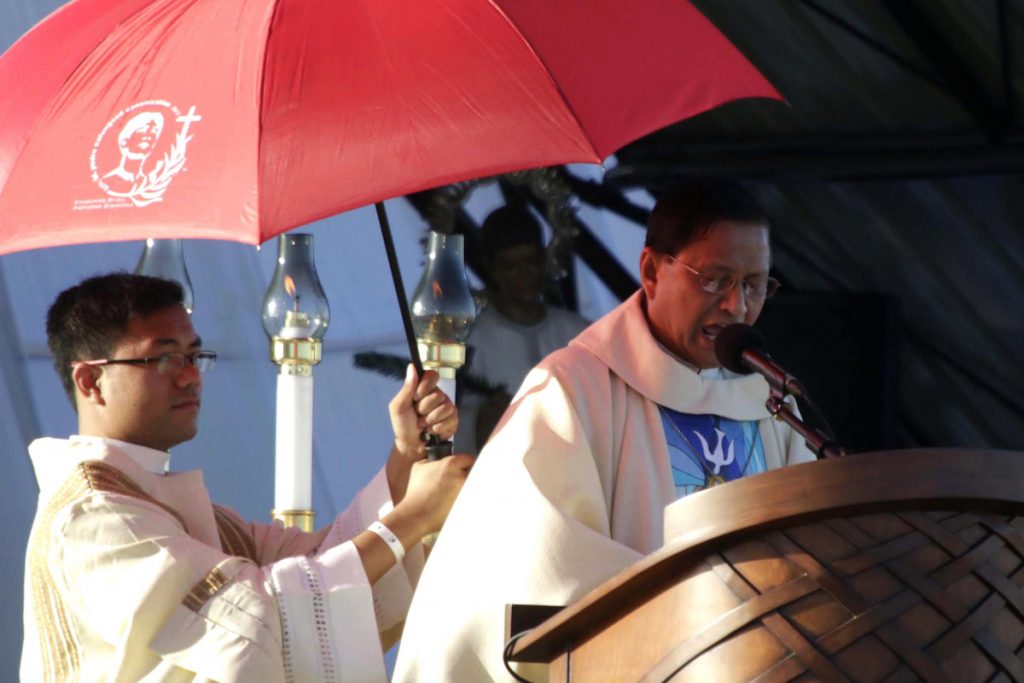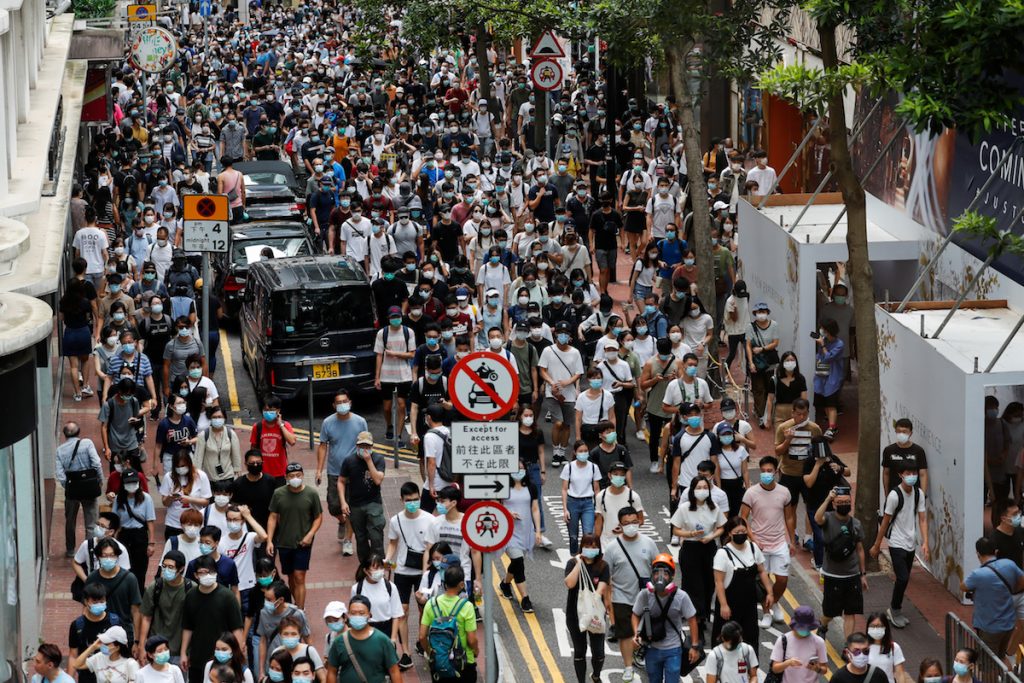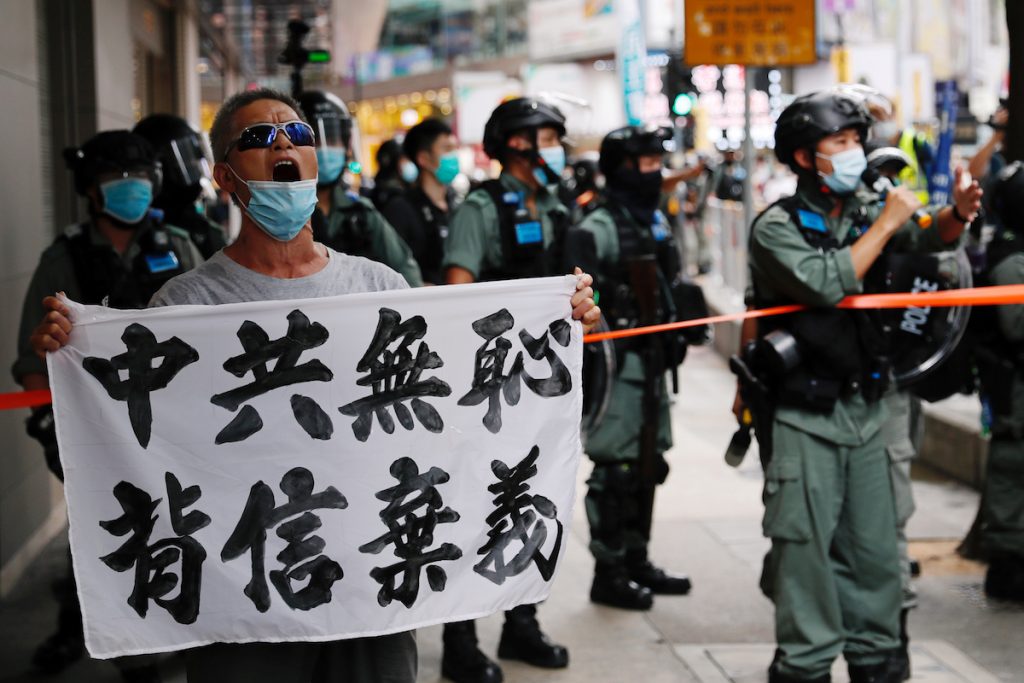Church leaders across Asian warned against the imposition of a new national security law in Hong Kong, saying it puts at risk freedom of religion or belief.
“This legislation potentially undermines freedom of expression, freedom of assembly, media freedom and academic freedom,” said the Federation of Asian Bishops Conferences (FABC).
In a statement released to media on July 2, Cardinal Charles Maung Bo of Yangon, FABC president, called on “people of all faiths” to pray for Hong Kong and for China “with great insistence.”
“I am concerned that the law poses a threat to basic freedoms and human rights in Hong Kong,” read Cardinal Bo’s statement dated July 1.
He described the imposition of the new national security law on the city as being “done without systematic consultation with the general public.”
“This law seriously diminishes Hong Kong’s freedoms and destroys the city’s high degree of autonomy’ promised under the ‘One Country, Two Systems’ principle,” said Cardinal Bo.
The Catholic church leader said that although a national security law is “not in itself wrong,” it should be “balanced with protection of human rights, human dignity and basic freedoms.”

In his statement, the prelate said that even if freedom of worship is not directly or immediately affected, the new security law … “could result, for example, in the monitoring of religious preaching, the criminalization of candlelit prayer vigils, and the harassment of places of worship that offer sanctuary or sustenance to protesters.”
“Will religious leaders now be criminalized for preaching about human dignity, human rights, justice, liberty, truth? We have learned from heavy experience that that wherever freedom as a whole is undermined, freedom of religion or belief — sooner or later — is affected.
“It is my prayer that this law will not give the government license to interfere in the internal affairs of religious organizations and the services they provide to the general public,” said the cardinal.
He called for a “clear assurance” that the participation of religious bodies in social affairs “should not be disturbed” as provisions in Hong Kong’s Basic Law guarantee freedom of belief.
“It is imperative that the underlying causes of unrest should be attended to, and that meaningful reforms and compromises are reached,” he said, but added that the new national security law “threatens to exacerbate tensions, not to provide solutions.”

In an earlier statement, Cardinal Joseph Zen, bishop emeritus of Hong Kong, warned that the new law can lead to a clamp down on religious freedom.
He called out the Vatican for “remaining silent” on the situation, noting that the Holy See might still be hoping to establish diplomatic relations with China.
In a video posted on social media on June 30, the retired prelate said he had “no confidence” in religious freedom protections in the new security law.
Extensive powers for Beijing
The new national security law came into effect on June 30, eve of the 23rd anniversary of the handover of Hong Kong from British rule to China.
It was kept secret from the public until the law went into effect and seemed to offer the government, courts, and the police guidelines to quash anti-government protests that rocked the city last year.
The new law broadens the powers of local and mainland authorities to investigate, prosecute, and punish dissenters. It criminalizes secession, subversion, terrorism, and collusion with foreign powers.
Those convicted of such crimes can face sentences of up to life in prison.
Activities such as damaging public transport and public services “in order to pursue political agenda” can now be considered terrorism.

Under the law, the Chinese central government will establish its own law enforcement presence in Hong Kong dubbed as the “Office for Safeguarding National Security.”
National security cases involving state secrets can be tried without a jury.
The law also targets perceived foreign interference in Hong Kong. The Chinese communist government has been blaming “foreign forces” for interfering in the city’s affairs during the series of protest actions in recent months.
The law states that anyone who “steals, spies, obtains with payment, or unlawfully provides state secrets or intelligence” to a foreign country, institution, organization or individual will be guilty of an offense under collusion with foreign powers.
The law also makes it an offense for people to call on a foreign country, institution, organization or individual to impose sanctions or blockades on Hong Kong.
Working with a foreign government, institution, organization or individual to incite hatred against the Hong Kong or Chinese central government is now an offense.
Hong Kong’s top official, Chief Executive Carrie Lam, said the law is a “crucial step to ending chaos and violence that has occurred over the past few months.”
“The national security law is the most important development in securing ties between China and the Hong Kong Special Administrative Region since the handover,” she said.






